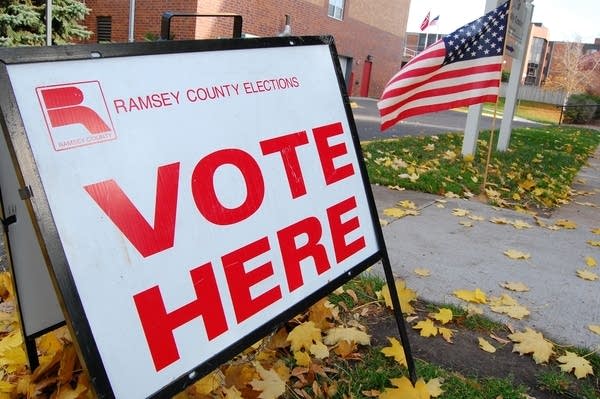Lawmakers propose flurry of constitutional amendments
Go Deeper.
Create an account or log in to save stories.
Like this?
Thanks for liking this story! We have added it to a list of your favorite stories.

After seven years in the Minnesota Senate, Sen. Geoff Michel, R-Edina, said he's convinced that too many of his colleagues are too easily re-elected.
He says a handful of those legislators then end up wielding all of the power as committee chairs. Michel wants a new approach, and he's proposing a constitutional amendment to limit senators to three terms and representatives to five. The offices of attorney general, auditor, governor, lieutenant governor and secretary of state would have two-term limits.
"One of the ways to bring some new blood and some fresh ideas, and to frankly break the power of this small number of legislators who hold a lot of the cards around here, is to bring term limits to Minnesota," Michel said.
The targets of other proposed constiutional amendments are outside of government. Rep. Tom Emmer, R-Delano, said he wants the constitution to prohibit employers from making union membership a condition of employment.
Turn Up Your Support
MPR News helps you turn down the noise and build shared understanding. Turn up your support for this public resource and keep trusted journalism accessible to all.
"The individual should have the right not only to work in a place he or she is qualified and is wanted, but they should also have the choice whether they want to be part of an organized union or not," Emmer said.
Emmer is also sponsoring an amendment to protect freedom of choice in health care.
Proposed constitutional amendments must get the support of a majority of legislators in both the House and Senate to get on the statewide ballot. Voters then approve or reject the amendment in the next general election.
Minnesota's hurdle for approval is already higher than most states, because a majority of those voting in the election must vote 'yes' on the proposed amendment, not just a majority of those voting on the ballot question.
But some legislators want tougher requirements for getting a proposed amendment on the ballot. Sen. Tom Bakk, DFL-Cook, said a proposed amendment should need the support of 60 percent of the members in both legislative bodies.
"We need to make sure that we make it more difficult to tie the Legislature's hands in the future on what priorities are," Bakk said.

Bakk believes the past two constitutional amendments approved by Minnesota voters were bad public policy. Voters agreed last November to increase the state sales tax by 3/8 of 1 percent and dedicate the money to environmental and cultural resources. Two years earlier, they dedicated revenue from the motor vehicle sales tax to a highway trust fund.
Bakk said those kind of moves should need more votes to get on the ballot.
"My issue with locking up more and more pots of general fund money, saying this is what it has to be spent on, reduces the flexibility of future Legislatures to respond to new information, to respond to changing priorities in the part of the public," Bakk said. "So, I think making it more difficult to get something on the ballot is good public policy."
With the state facing a huge budget deficit, Bakk said he's concerned that more special interest groups will try to use the constitution to protect their share of state funding.
House Speaker Margaret Anderson Kelliher, DFL-Minneapolis said Bakk may have a point, but she thinks the current system has worked pretty well. Kelliher said the state constitution has not become cluttered with amendments.
"I think the reality of passing a constitutional amendment with the voters is very, very difficult," Kelliher said. "And the amendment that was passed last fall was over a decade in the making, and also took a lot of muscle to get it done."
There have been 13 consitutional amendment proposals introduced this session in the House and Senate, but most won't get attention until next year. Sen. Bakk's bill recently faced an initial committee hearing and won preliminary support.



